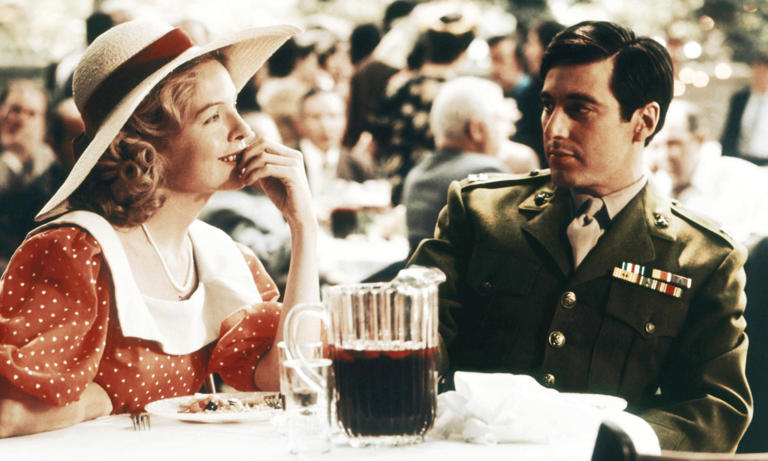Iremember the first instance I heard the word ‘pansexual’, used at the time by a 23-year-old Miley Cyrus opening up about her sexuality in an interview with Paper Magazine. In the days afterward, the now 30-year-old singer was ridiculed online and in tabloids as though she were some kind of exhausting child who just wanted attention. That’s what it’s like being pansexual, a relentless pursuit to justify your sexuality to a world of people that roll their eyes and raise their eyebrows merely hearing the word.
I know that now, because by Miley bringing the word to my attention, I began to understand that it might better describe my sexuality having previously identified as bisexual. But in a world that refuses to learn more about the many tangents of the LGBTQ+ community, the stigma around being pansexual has often kept me from feeling safe to use the term in conversation.
What does ‘pansexual’ mean?
The dictionary definition of pansexual is as follows: Pansexuality is sexual, romantic, or emotional attraction towards people regardless of their sex or gender identity. Pansexual people may refer to themselves as gender-blind, asserting that gender and sex are not determining factors in their romantic or sexual attraction to others.
How is pansexuality different to bisexuality?
But it’s slightly more complicated than that, especially for someone like me, who was growing up at a time when the only widely used labels for someone’s sexuality were gay, lesbian, and bisexual. I had identified as bisexual for years, and my interpretation of that was that gender didn’t factor into attraction for me – so, essentially the same thing as pansexual in my eyes.
Then, in a random conversation with a friend of a friend, I was told that the term ‘bisexual’ actually specified attraction to men and women, thus excluding anyone who didn’t fit into those binary genders, which I didn’t realise at the time is a common misconception about bisexuality. This person was projecting their own assumptions about bisexuality on to me, and since I didn’t know any better at the time, suddenly the term ‘bisexual’ started to feel exclusionary, and pansexuality became a better definition for people like me for whom gender is irrelevant.
To be clear, like most bisexual people I know, I’ve always found that distinction around gender to be unnecessary. There may well be some bisexual people who are exclusively attracted to cisgender men and women, but in my experience within the queer community, the majority of bisexual people label themselves that way because they don’t see any kind of gender as a mitigating factor in their attraction. In that sense then, the terms ‘pansexual’ and ‘bisexual’ can be used in place of one another – at least I do, but I of course don’t speak for all queer people.
Which celebrities are pansexual?
Miley Cyrus describes her choice, for example, to use the word ‘pansexual’ because she found the label ‘bisexual’ too restrictive.
‘My whole life, I didn’t understand my own gender and my own sexuality. I always hated the word “bisexual” because that’s even putting me in a box,’ she told Variety in 2016. ‘I don’t ever think about someone being a boy or someone being a girl. My eyes started opening in the fifth or sixth grade. My first relationship in my life was with a chick. Once I understood my gender more, which was unassigned, then I understood my sexuality more.’
She’s not the only Hollywood celebrity to come out as pansexual. Demi Lovato, Janelle Monáe and Cara Delevingne all identify as bisexual. British singer Yungblud has described himself as pansexual too, as has Panic! At the Disco lead Brendon Urie and actor Bella Thorne. More recently, Outer Banks star Madison Bailey came out as pansexual on TikTok, as did Dance Mons star JoJo Siwa. In 2020, Liberal Democrat MP Layla Moranbecame the only pansexual MP to publicly declare their sexuality after beginning a relationship with a woman.
How do I test to see if I’m pansexual?
With so much more awareness, you can now even do ‘pansexuality tests’ online to determine whether the label better describes your sexuality. On websites like The Proud Trust, you can learn about all of the terms used to describe different sexualities in the queer community, or chat to someone on their Live Chat to have a real conversation about what sexuality means to you.
In fact, ‘pansexuality test’ is a major breakout search term in relation to the word, as is ‘pansexual memes’ and ‘pansexual flag. In case you’re looking for some wholesome pansexual memes, check out this Instagram account for the best of the best
What is the pansexuality flag?
FYI, the pansexuality flag is pink, yellow, and cyan, designed as a symbol for the pansexual community to increase its visibility and recognition, and distinguish itself from bisexuality.
So, there you have it, the definition of pansexuality explained, as well as the many different interpretations and meanings of it!
Reference: Story by Grazia Contributor: Grazia

